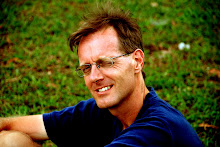
We cannot rest on our laurels, or indeed our yews or oaks.
OVER THE PAST few years, the idea of carbon ‘offset’ or ‘carbon-neutral’ projects has found a large following. Show-biz celebrities, aid agencies and even financial institutions like the World Bank hail tree-planting and similar projects as a win-win-win approach to global warming. But can climate damage caused by fossil-fuel emissions really be ‘neutralised’ or ‘offset’?
The idea is simple enough: we pay someone else, somewhere else, to cover their land with trees, and they will soak up the carbon dioxide released through the emissions from our bargain flight to the sun or that flashy CD release or that big corporate conference. We can go on using fossil fuels without affecting the climate as long as we plant enough trees.
So what’s wrong with using trees to soak up greenhouse gases?
What ‘offset’ forestry does is confuse fossil carbon with biological carbon. It claims that emissions from burning oil, gas or coal can be considered equal, in climatic terms, to the biological carbon stored in a tree. One UK-based ‘carbon-neutral’ service says that it can calculate exactly how many trees someone will need to plant and tend for ninety-nine years in order to soak up the emissions generated by air travel to, say, Brussels.
The problem in reality is that carbon emissions from burned oil, gas or coal cannot be considered as equal to the same amount of biological carbon in a tree. Why not? Because there exists naturally an active carbon pool with carbon freely moving between forests, oceans and air. The fossil carbon pool, in contrast, is inert. But once out of the ground, fossil carbon joins the active carbon pool and will not go back into the fossil carbon pool for millennia. Releasing fossil carbon increases the active carbon pool, and this is the crucial difference between fossil and biological carbon.
Of course, trees can also die, at which point they release most of the carbon that they keep locked away from the atmosphere. In relation to ‘offset’ forestry, proponents assure us that they can calculate the odds and take this into consideration. Yet within scientific circles intense debate continues about whether one can actually predict over the next century, or even the next decade, the carbon fluxes of complex ecosystems.
CAN ANYONE REALLY calculate the carbon performance of a tree? Can we really guarantee how much carbon planted forests can mop up? Cambridge University landscape historian Oliver Rackham suggests that “For its practical effect, telling people to plant trees to reduce global warming is like telling them to drink more water to keep rising sea levels down.”
Even if we could accurately predict the carbon performance of a tree, just dealing with the increased carbon dioxide emissions we will generate worldwide over the next half century would require completely covering Europe – from the Atlantic to the Ural mountains – with trees. Soaking up the UK’s annual greenhouse-gas emissions would require planting an area of forest the size of Devon and Cornwall every single year – and maintaining it forever.
But carbon ‘offset’ troubles don’t end there. The Norwegian organisation The Future In Our Hands has described tree-planting projects in Uganda and Tanzania as a new form of colonialism, under which Northern companies and affluent citizens claim lands in the South to ‘compensate’ for damage caused by burning fossil fuel elsewhere. Already, monoculture plantations aimed at soaking up carbon dioxide released in the North are damaging lands essential to many peoples’ survival in Brazil, Ecuador, Uganda and Tanzania. Reports released by the World Rainforest Movement and the Forest Peoples Programme show that local and indigenous communities in Ecuador and India are paying a high price for carbon ‘offset’ projects they signed up to on the promise of jobs and development. In reality, these projects simply entrench social inequality, demand unpaid labour to fulfil communities’ contractual obligations, and further weaken traditional land rights.
Closer to home, tree planting charities are also getting the short end of the stick. They receive only a small fraction (around 2%) of the fee paid to carbon ‘offset’ services for planting a tree. According to The Observer, this amounts to approximately twelve pence out of the six pounds charged for planting the tree – certainly not enough to plant and preserve a tree for ninety-nine years.
SADLY, MUCH AS we’d all like a way to combat the ever–worsening problem of climate change, and wonderful though trees are, they do not provide a magic solution that will allow us to go on mining and burning fossil fuels. Carbon ‘offset’ projects may salve our conscience, but they won’t solve the problem of global warming. On the contrary, by creating the illusion that all is well as long as we pay a little extra, they may further delay global agreement on decisive action to avert climate change.
Jutta Kill is Climate Change Campaign Co-ordinator for FERN.
www.fern.org



